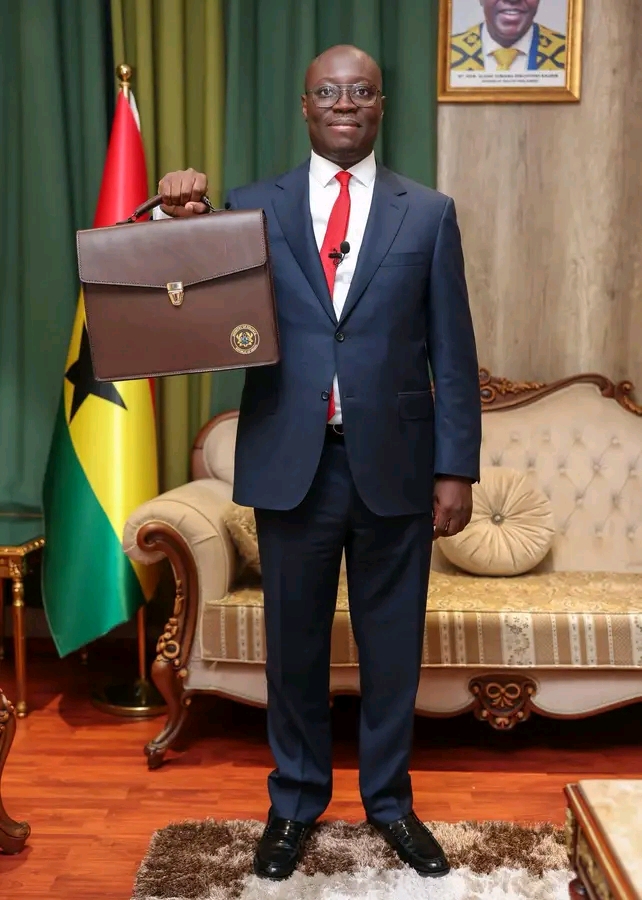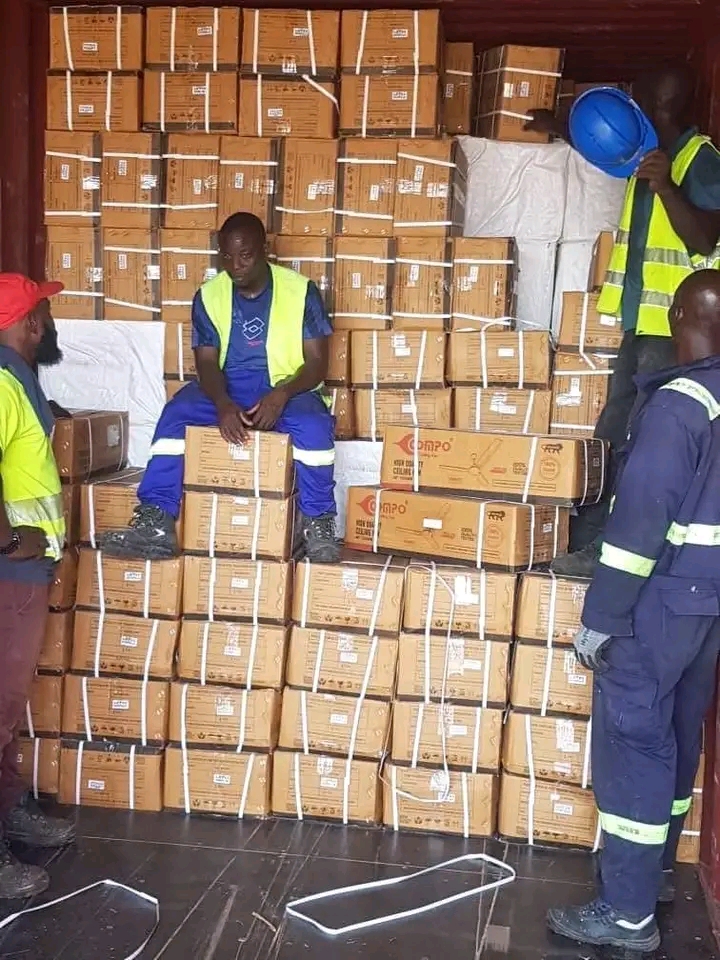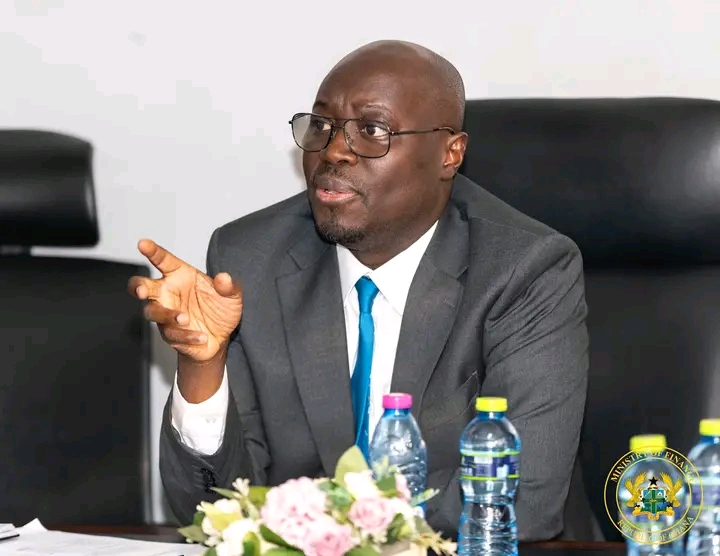By: Kenneth Appiah Bani
The presentation of the 2026 Budget Statement and Economic Policy by Ghana’s Minister for Finance, Dr. Cassiel Ato Forson, on 13th November 2025, marked a significant moment in the country’s economic governance. Delivered under the theme “Resetting for Growth, Jobs, and Economic Transformation,” the budget reflects a comprehensive plan designed to stabilise the economy, build resilience, and chart a pathway toward inclusive and sustainable development. As the second budget of the Mahama administration, it provides clarity on the government’s long-term vision, its economic strategy, and its commitment to correcting structural weaknesses that have hindered Ghana’s progress in recent years.
The budget presentation began with a candid acknowledgment of the economic distress the government inherited. According to the Minister, the economy was weighed down by high debt, instability, weakened investor confidence, and persistent inflation when the administration assumed office. However, through intentional policy direction and fiscal discipline, the government has reversed a trajectory of decline. Evidence of this recovery is seen in the sharp fall in inflation from 23.8 percent in December 2024 to 8 percent by October 2025 as well as the steady appreciation of the cedi and a significant rebound in economic growth. These early gains provide the basis for a more ambitious and transformative policy strategy presented in the 2026 Budget.
At the heart of the budget is a three-pillar approach aimed at securing macroeconomic stability, accelerating economic transformation, and strengthening social and security systems. These pillars collectively outline a roadmap that seeks not only to restore stability but also to lay the foundation for a more competitive, productive, and inclusive economy. The first pillar consolidating macroeconomic stability prioritizes fiscal discipline, responsible debt management, and enhanced revenue mobilization. The government’s commitment to keeping central bank financing at zero, tightening expenditure control, and improving tax administration illustrates its determination to safeguard the progress made so far. Meeting five out of the six ECOWAS convergence criteria further highlights Ghana’s renewed fiscal credibility and its leadership within the sub-region.
The second pillar accelerating economic transformation and job creation addresses the structural challenges that have long constrained Ghana’s productive capacity. The budget emphasises large-scale infrastructure development through the Big Push agenda, increased energy sector investments, and targeted support for agriculture and agribusiness. By expanding irrigation, promoting mechanisation, and revitalising cocoa production, the government aims to transform agriculture into a modern, commercially vibrant sector. Similarly, the introduction of the 24-Hour Economy is positioned as a major catalyst for job creation and productivity. By encouraging continuous operations in key economic sectors, the programme seeks to unlock new employment opportunities, boost exports, and increase the country’s competitiveness in the global market.
The third pillar strengthening social and security sectors for inclusive growth reflects the government’s recognition that economic stability must be accompanied by improvements in human development. Education, health, water, sanitation, and security receive substantial attention in the budget. The creation of the Ghana Medical Trust Fund, known as MahamaCares, represents a major step toward improving access to quality healthcare, especially in underserved areas. Similarly, the continued support for Free Senior High School, expansion of TVET programmes, and digital transformation in the education sector underscore the government’s commitment to strengthening human capital. Enhancing security capabilities and expanding social interventions further support the broader goal of building resilient communities.
A closer examination of Ghana’s economic performance in 2025, as outlined in the budget, reveals a country in the midst of a strong recovery. The economy grew by 6.3 percent in the first half of the year, driven largely by expansions in the services and agricultural sectors. Services grew by 8.8 percent, buoyed by impressive gains in ICT, education, finance, and transport. Agriculture grew by 6 percent, supported by higher crop yields and a rebound in cocoa production after years of decline. Industry, though moderating, recorded growth in manufacturing and construction signs of improving business confidence and stabilising market conditions. These trends suggest that Ghana’s macroeconomic environment is becoming more conducive to private-sector activity, employment growth, and long-term investment.
The 2026 Budget also includes a series of legislative and administrative reforms intended to improve public sector efficiency and strengthen accountability. Bills such as the Value for Money Bill, the VAT Amendment Bill, the repeal of the COVID-19 Health Recovery Levy, and the introduction of an AI-powered trade analytics system demonstrate the government’s intent to modernize public financial management and reduce leakages. Such reforms are crucial for ensuring that public resources are used effectively and that citizens receive value from government expenditure.
Overall, the 2026 Budget represents more than a financial plan; it is a national reset. It signals a shift from short-term crisis management to long-term development planning. By focusing on fiscal responsibility, economic transformation, and social wellbeing, the budget articulates a clear vision of a Ghana that is productive, inclusive, and globally competitive. However, the success of this vision ultimately depends on consistent implementation, strong institutions, and the collective effort of government, private sector, and citizens alike.
In conclusion, the 2026 Budget lays out a transformative agenda anchored in stability, growth, and opportunity. It recognizes the challenges of the past, builds on the progress of the present, and charts a bold course for the future. If effectively executed, the policies and reforms outlined have the potential to reshape Ghana’s economic landscape and improve the quality of life for millions of Ghanaians. As the nation looks ahead, the budget offers both a roadmap and a renewed sense of purpose positioning Ghana on a path toward sustainable prosperity and national renewal.





